The Food Justice Award
The Bee Conservancy supports community gardeners and urban farmers who address food insecurity by providing pollinator-focused training, habitat creation, and supplies that help improve crop yield, biodiversity, and local ecosystems.
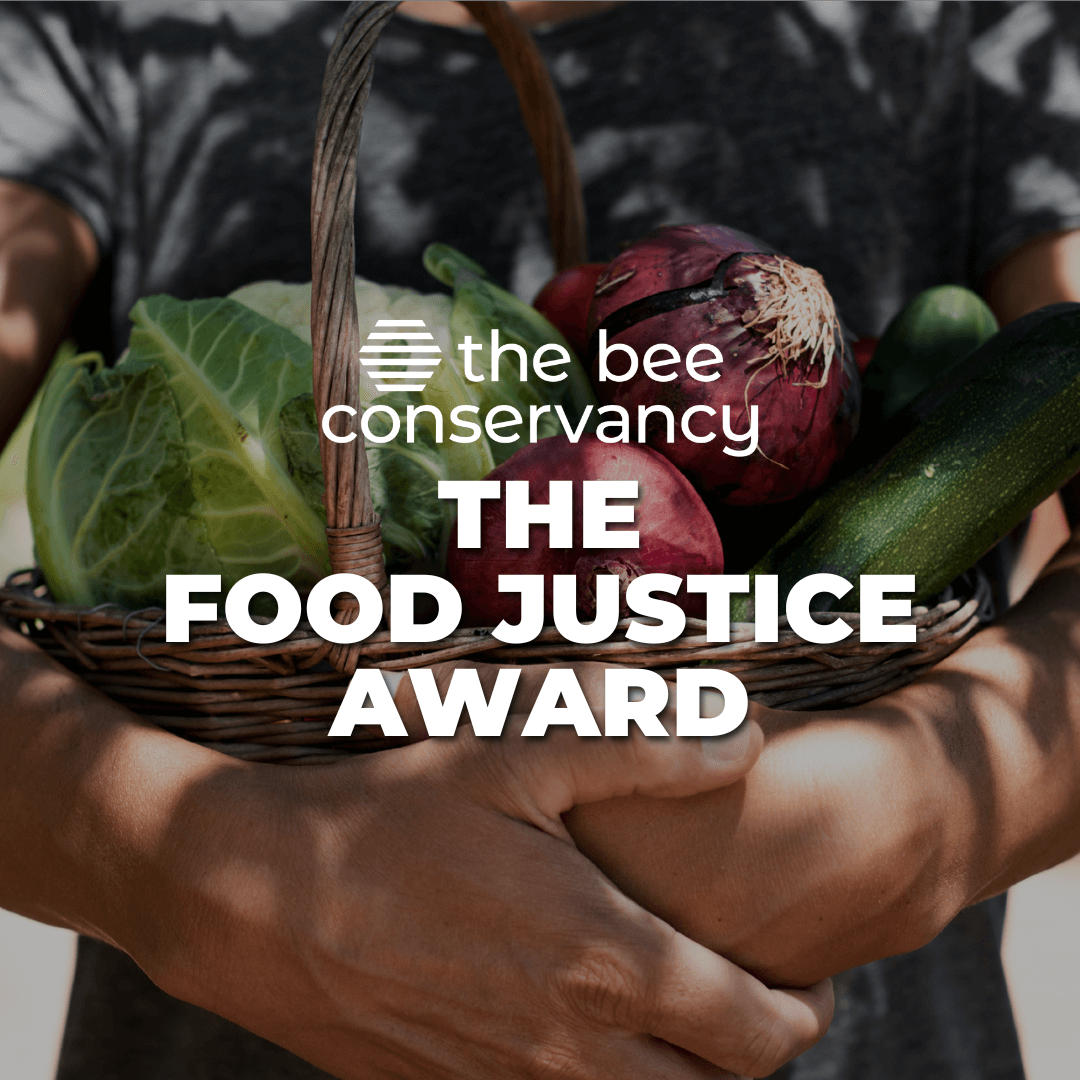
Training, Supplies, and Pollinator Habitat for Community Growers
Bees pollinate one third of the food that we eat, and are essential to secure food systems. Yet declining bee populations contribute to the rising cost of healthy food, exacerbating health and access issues in food insecure neighborhoods. According to the USDA, 18 million households in the U.S. were food insecure at some period during 2023.
The Bee Conservancy’s Food Justice Award seeks to bolster crop yield and community resilience through customized awards of training, equipment, pollinator habitat installation, and mentorship. Our goal is to increase crop pollination services, provide skill-based training, and improve biodiversity and local ecology at urban farms and community gardens that sustainably grow culturally relevant and nutritious fruits and vegetables for the communities they reside in.
The Link Between Bees and Our Food System
Bees pollinate 80% of the world’s flowering plants and are essential to the production of one in three bites of food that we eat. The United States Department of Agriculture estimates that honey bees alone pollinate $15B across 130+ crops in the U.S. annually. In addition, countless bee species that include bumble bees, mason bees, squash bees, and leaf cutter bees join honey bees as the primary pollinators for crops like tomatoes, almonds, and alfalfa. Specialist feeders such as Blue Orchard Mason Bees have co-evolved with fruit trees over time to feed on, and in the process pollinate, trees that include apples, plums and pear.
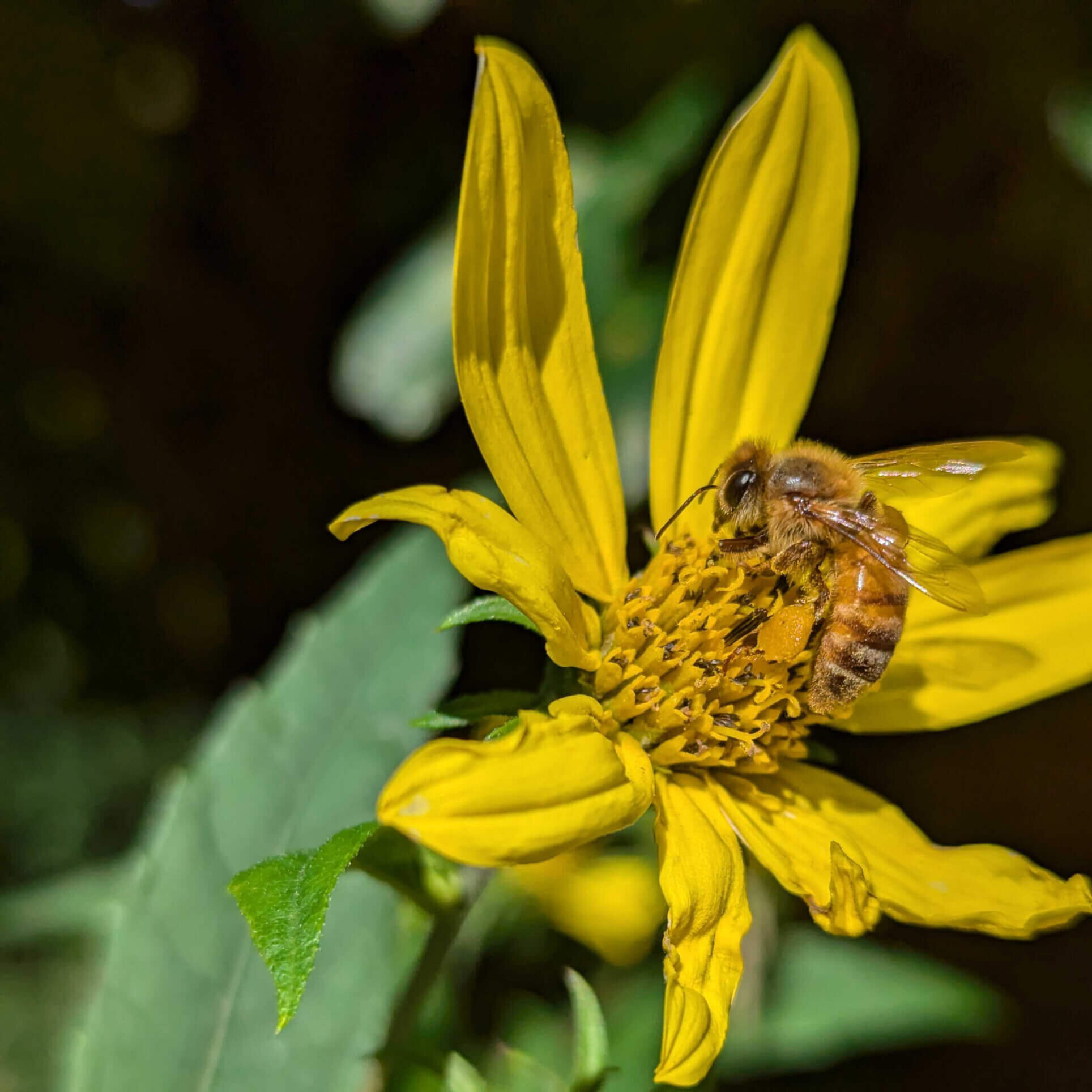
Source: TBC Staff
Honey Bee (Apis mellifera)
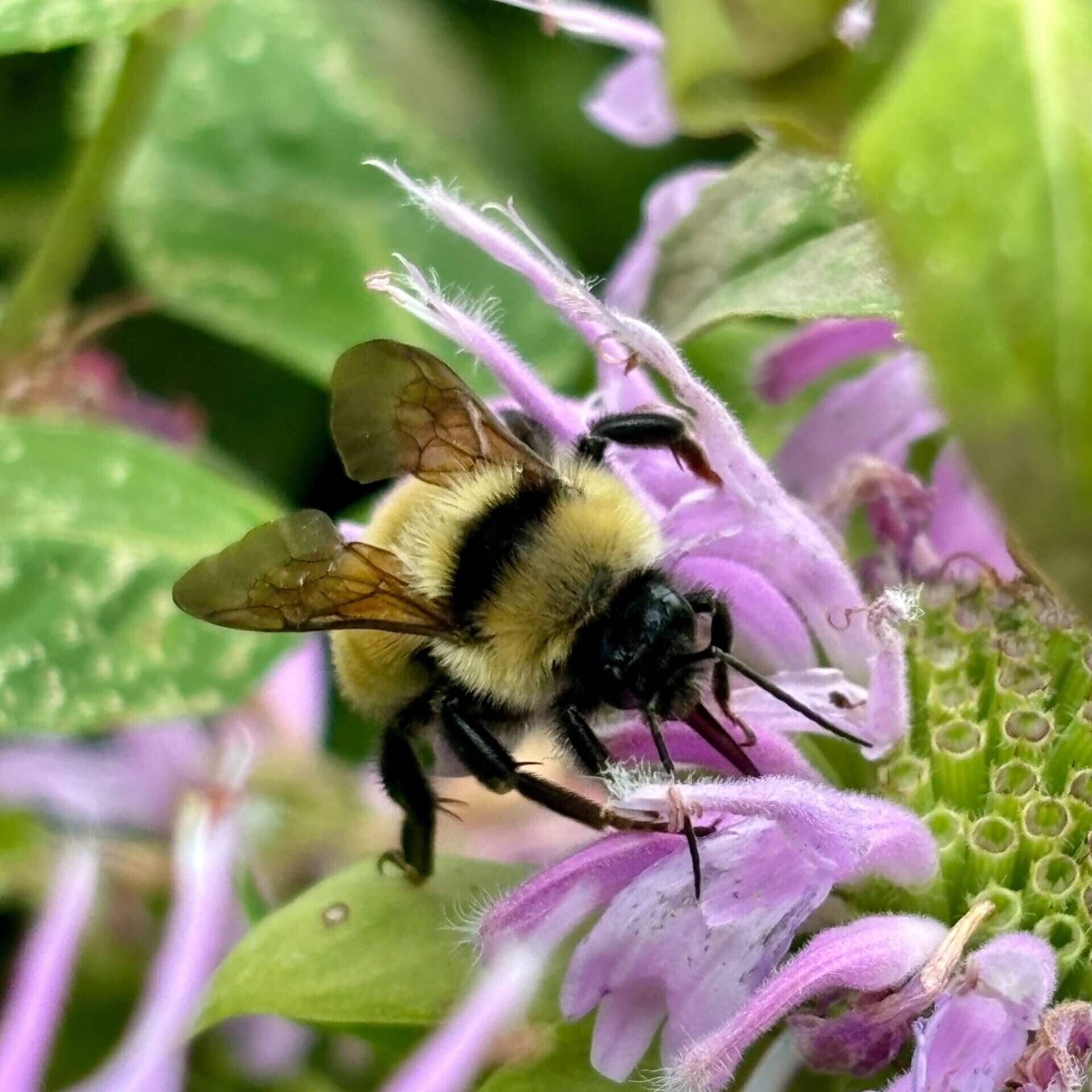
Source: TBC Staff
Bumble Bee (Bombus)

Source: Heather Holm
Mason Bee (Osmia)
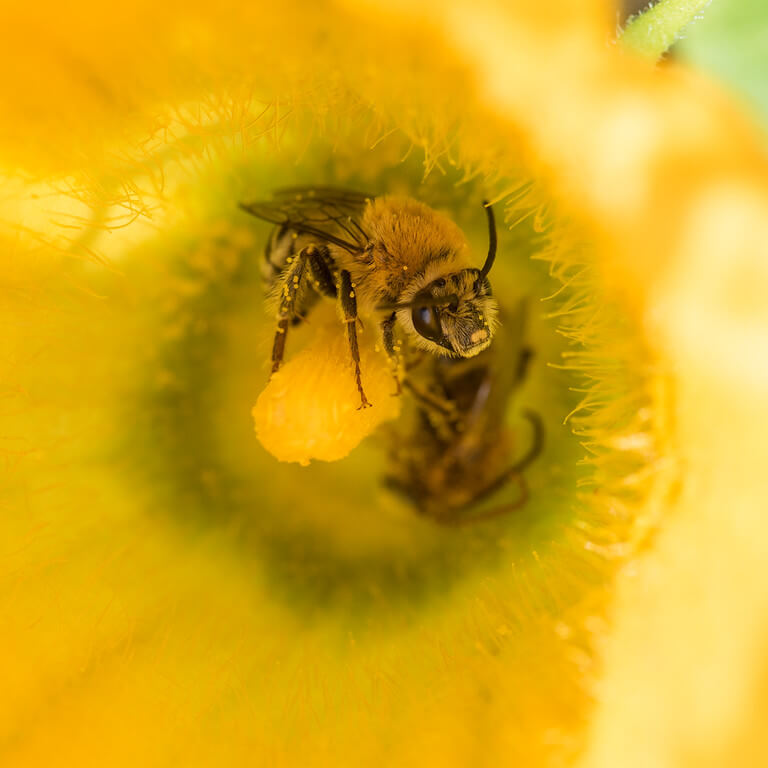
Source: Heather Holm
Squash Bee (Peponapis pruinosa)
Food Justice Award Overview
How does your food garden grow? With the help of healthy, happy bees. We work closely with awardee organizations to tailor a support system that bolsters the pollinators and people at the heart of each food security initiative.
Bee Gardens and Habitat
We provide native seeds and seedlings to establish pollinator gardens beside crops. Inspired by the agricultural practice of building wildflower or “prairie” strips throughout food-filled fields, these location-appropriate blooms entice a broad range of pollinators and beneficial insects to the area and help balance local ecosystems. Gifts of TBC’s custom cavity-nesting bee house offer shelter to species including mason, leaf cutter, and small carpenter bees.
Education and Training
Ongoing skill- and science-based training is fundamental to improve stewardship of the land and environment. To minimize barriers to best-in-class education, we provide tuition to bee, pollinator, and land management courses from institutions including Cornell University and the University of Florida. We also provide bee garden maintenance, care, and assessment tips to maximize pollinator plant health.
Supplies and Equipment
To mitigate the costs of beekeeping, native plant gardening, and community education, TBC provides supplies and equipment that advance these goals. From seedlings, to bee hive equipment, to pest management treatments, and more, we hope our gifts help orgs focus more on their mission and not financial barriers.
Mentorship and Community Outreach
At TBC, we strongly believe that the best way to help and heal the planet is together. Through knowledge sharing, awardee-wide community networking, and direct 1:1 mentorship, we cultivate a culture of camaraderie and support to empower our awardees.
Urban Farms and Community Gardens Advancing Food Security
Since its launch in 2022, our Food Justice Program has partnered with wonderful organizations dedicated to combating food insecurity and fostering sustainable solutions to nourish communities.
2024-2025 Awardees
- Urban Creators (Philadelphia, PA)
- Eco City Farms (Hyattsville, MD)
- Backyard Basecamp (Baltimore, MD)
- Aasaaska Foundation (Hartford, CT)
2023-2024 Awardees
- Urban Creators (Philadelphia, PA)
- NYCHA’s Farragut Houses Pulse Community Garden (Brooklyn, NY)
- Hell’s Kitchen Farm Project (Manhattan, NY)
2022-2023 Awardees
- Urban Creators (Philadelphia, PA)
- Philly Forests (Philadelphia, PA)
- Love Bug Farm (Washington, DC)
- THEARC Farm (Washington, DC)
- Juniper’s Garden (Washington, DC)
- Watkin’s Urban Farm Incubator (Washington, DC)
- GreenWithin (Washington, DC)
- Capital Area Food Bank (Washington, DC)
- Greater Newark Conservancy (Newark, NJ)
Awardee Spotlight: Urban Creators (Philadelphia, PA)
Urban Creators (UC) is a non-profit organization in Northern Philadelphia dedicated to empowering 1,000+ residents a year through educational events and the production and distribution of approximately 1,000 pounds of food.
Their dedication to building a resilient community and ecosystem has made them a year-over-year recipient of TBC’s Food Justice Award benefits.
Since 2022, TBC has sponsored several UC team members through beekeeping coursework at eCornell and the University of Florida, provided beekeeping equipment and supplies for their apiary, and native plant seedlings to bolster biodiversity and crop yield.
Source: Urban Creators
Your Help is Indispensable to Our Work
Bee populations are critical for ensuring a healthy environment. Please give today to build a healthier, more resilient future for all.

TBC’s native plant partner is My Home Park. Founded by a bee biologist committed to building biodiversity and making native plant gardening accessible, MHP is donating one native plant for every four sold to our Food Justice Awardees. Read about our collaboration here.
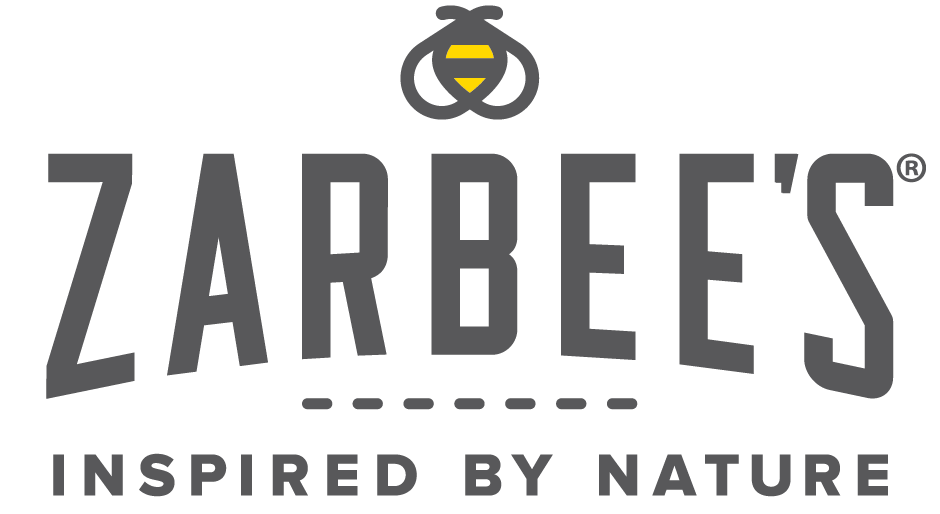
The Bee Conservancy’s Food Justice Award is sponsored by Zarbee’s, with a vision for community resilience that lies at the intersection of Zarbee’s philosophy of care for people and planet and The Bee Conservancy’s mission to secure environmental and food justice.